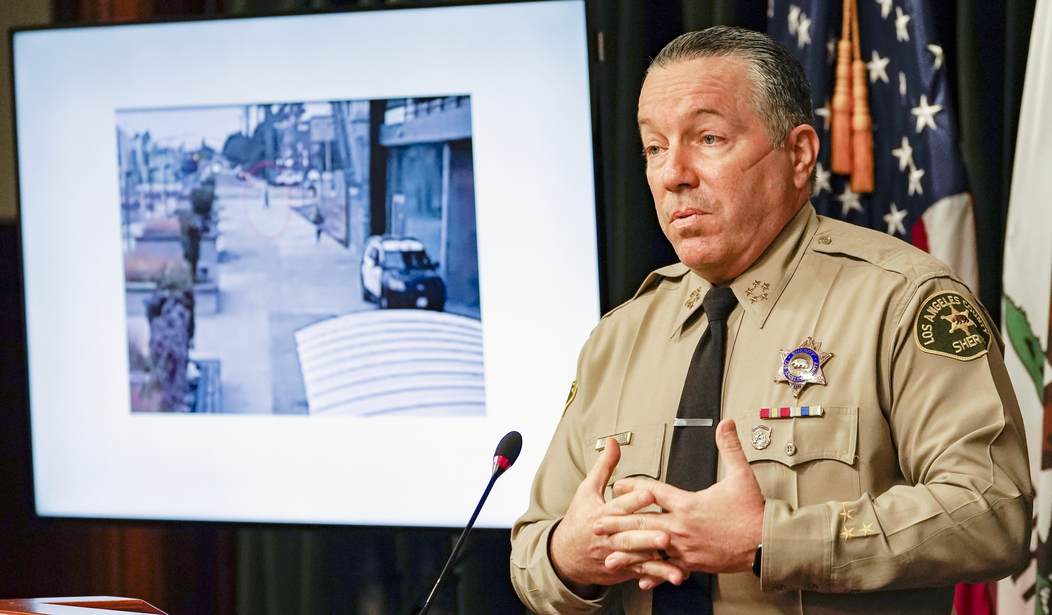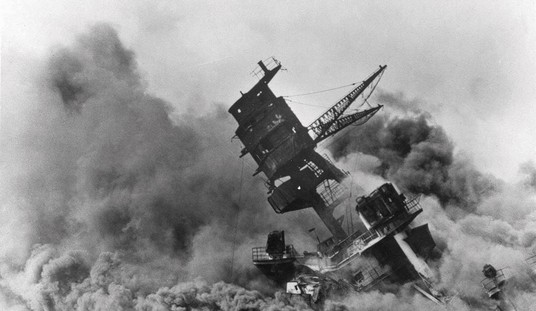The role of sheriff is one of the most understated positions in American governance, yet it is arguably one of the most important – especially from a liberty-centered perspective.
A sheriff who is fulfilling his or her constitutional duty stands up for the rights of citizens – especially in the face of state and federal overreach. They represent a sense of decentralization and the idea that local politics is the most important – which is why some progressives can’t stand them.
In a guest essay for the New York Times, author Maurice Chammah insinuated that sheriffs have far too much power. He started by telling the story of Billy Ames, who died from a meth overdose in a St. Francois County jail in Missouri.
Ames had been strapped to a restraint chair, which is a controversial device that can make it more difficult to detect a medical crisis. The author recounts visiting the jail, describing it as a dungeon-like facility.
Daniel Bullock, the sheriff at the time, denied any wrongdoing. However, Ames’ family sued the sheriff’s department, eventually settling for $1.8 million. Bullock later lost his 2024 primary race after serving for three decades.
The author referred to a CBS News investigation that found that over 27 people out of every 100,000 arrested died in sheriff’s custody. The author then brought up how sheriffs across the country refused to go along with the authoritarian COVID agenda while also supporting former President Donald Trump.
Sheriffs made a splash in the 1990s, when several joined the National Rifle Association to fight a federal requirement to run background checks on people buying guns, and the Supreme Court sided with them. One of those sheriffs, Richard Mack of Arizona, expanded on his victory by starting the Constitutional Sheriffs and Peace Officers Association.
The group argues that sheriffs have more authority within their counties than the state or federal government.
Scholars call this belief fanciful, but it was held by nearly half of the sheriffs I surveyed with Ms. Holman and Ms. Farris. Mr. Mack’s group has “successfully radicalized a generation of sheriffs to believe that the office has seemingly unlimited power and autonomy,” Ms. Holman and Ms. Farris write.
This may explain why many sheriffs refused to enforce Covid lockdown orders in 2020, even as some of their own jails became hotbeds of infection.
Some later joined former President Donald Trump’s effort to prove that the 2020 election was stolen.
According to Reuters, the Michigan sheriff Dar Leaf unsuccessfully asked the courts to let him seize voting machines and “assigned investigators to grill local clerks.”
Mr. Trump is a big fan of sheriffs and often appears with them at rallies. While in office, he brought them to the White House and encouraged them to help the federal government arrest, detain and deport undocumented immigrants. If Mr. Trump is re-elected, he will likely try to reinvigorate these partnerships.
Then, the predictable race-baiting came. “Many sheriffs — who remain disproportionately white and male — appeal to conservatives through aggressive rhetoric on immigration,” Chammah wrote.
However, there appear to be some sheriffs the author likes – those who are pro-abortion.
Two years ago, Sheriff Javier Salazar of Bexar County, Texas — which encompasses San Antonio — responded to the overturning of Roe v. Wade by announcing on Facebook: “I will not persecute Texas women.” As more states pass laws criminalizing reproductive health care, sheriffs will undoubtedly play a role in deciding who faces investigation and arrest at the local level.
In states where abortion remains legal, they already exert control over whether people can access such health care from jails.
So if abortion rights are guiding your choice in the presidential race, don’t ignore the names at the bottom of the ballot.
The notion that sheriffs hold too much power is indicative of a mindset that favors a top-down approach to governance rather than a bottom-up stance. They believe government at the federal and state levels should reign supreme even over local governments. In this light, the role of the sheriff could be problematic for this type of agenda. I wrote a piece on my Substack explaining how sheriffs who are doing their jobs can serve as bulwarks for liberty against government overreach.
There are several more examples of how sheriffs protect their citizens from unconstitutional laws. You might recall when New Mexico Gov. Michelle Lujan Grisham (D) issued an order banning firearms in Albuquerque.
Bernalillo County Sheriff John Allen declared that he would refuse to enforce this order. When asked during a press conference what he would tell residents concerned that they would not be able to defend themselves against violent criminals, his answer was straight to the point: “That’s a quick answer: We aren’t enforcing it.”
When Illinois’ government passed an assault weapons ban, over half of the state’s sheriffs said they would not enforce it.
The framers of the Constitution designed the nation’s system of government as one where power is divided between national and state governments. The Constitutional sheriffs that Chammah mentioned in his article argue that they embody this principle by maintaining local control over law enforcement to ensure communities have autonomy from higher governments.
Sheriffs can refuse to enforce laws that violate constitutional rights – especially those laid out in the Bill of Rights.
Another point worth considering is that sheriffs are elected officials, which means they can be voted out. As with any government office, there is a high chance that they could be corrupt, as appeared to be the case with Billy Ames. But in that situation, voters fired the sheriff during the primaries. If enough people are paying attention and are engaged in their local politics, corrupt sheriffs won’t last long in their positions, unlike police chiefs who are appointed by the city government.
At this point in our nation’s history, federal overreach is a huge problem. The federal government continues to grow at an alarming clip, and politicians and bureaucrats seem to be constantly coming up with new ways to infringe on our rights and become more intrusive in our lives.
This is why we need people at the local and state level who are unwilling to go along with the authoritarian agenda. Sheriffs are among several officials who can do this, which is why we must pay attention to who fills this role in our communities.














